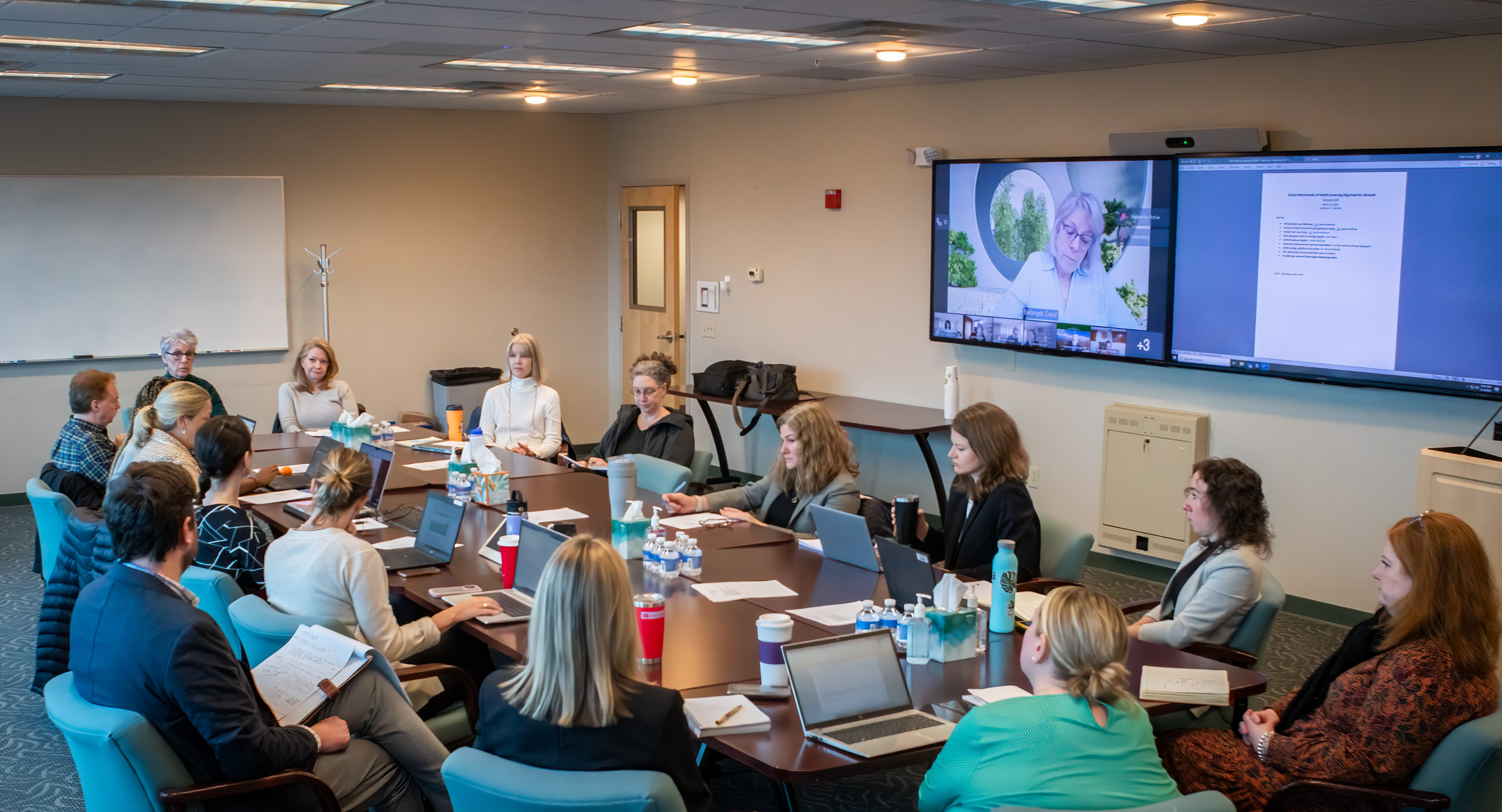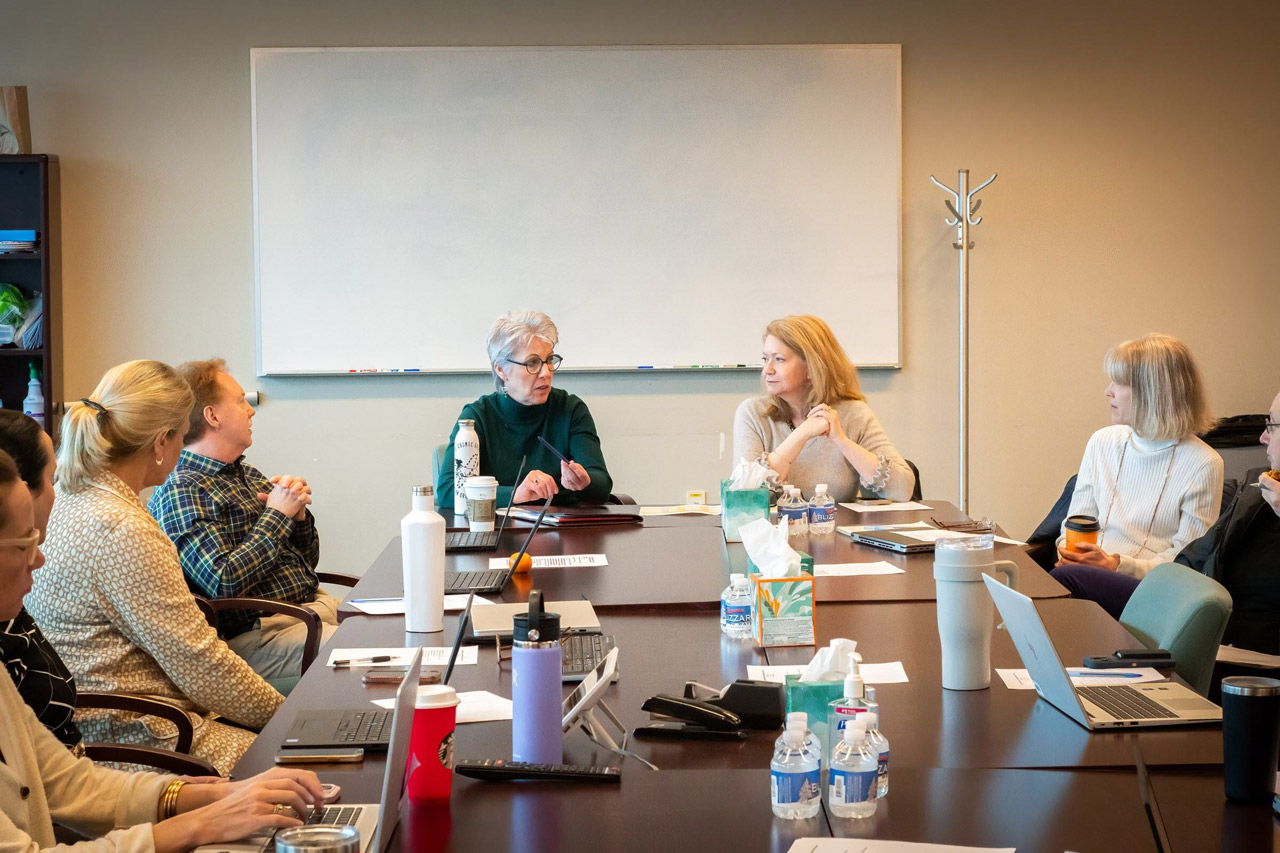
The Challenge and Opportunity:
“Social determinants of health (SDoH) are the non-medical factors that influence health outcomes and drive health inequities. They are the conditions in which people are born, grow, work, live, and age, and the wider set of forces and systems shaping the conditions of daily life.”(1)
In fact, 80% of an individual’s health is determined by what happens outside a doctor’s office—this includes housing, food, education, transportation, safety, social support, employment and health literacy. Addressing differences in SDoH can help drive progress toward health equity so that every person can attain their optimal health. Screening for SDoH in health care settings is an important approach for health care providers to identify and address the causes of social needs that can dramatically change patient health outcomes. One of the challenges to do this well, however, is identifying and implementing a tool that is not too cumbersome for patient and provider and is consistent across the continuum of care to gather the most meaningful data at the individual and population health level.
Starting in October 2023 through March 2024, OneCare hosted “Social Determinants of Health Screening Alignment for Vermont: Uncovering and Addressing Health Disparities,” a four-part series of collaborative conversations. There are multiple options for tools to screen for factors that affect health outcomes, such as transportation and food access, adequate housing, employment, personal safety, and mental health status. OneCare’s goal in facilitating this series of conversations was to appeal for state-wide alignment in the work, with the end goal of obtaining actionable and standardized digital data so health-related disparities are uncovered across the state in a consistent manner. To explore an opportunity for alignment around screening tools, these three-hour sessions brought together leaders from all categories of health care entities in Vermont to share current practices and explore desired future state related to screening for SDoH in our population.
Learnings from these collaborative conversations showed that multiple different screening tools are utilized in health care and community-based social services settings, some electronic and some paper. Additionally, we did not all screen comprehensively or in the same domains. Many providers are currently using a version or portion of the Centers for Medicare and Medicaid Services (CMS) Accountable Health Communities Health-Related Social Needs (HRSN) screening tool. To explore an opportunity for alignment around screening tools, these three-hour sessions brought together leaders from all categories of health care entities in Vermont to share current practices and explore desired future state related to screening for SDoH in our population.

The Discovery:
Learnings from these collaborative conversations showed that multiple different screening tools are utilized in health care and community-based social services settings, and that not all are screening comprehensively or in the same domains. Input collected at the first of these four meetings exposed the wide range of formats utilized—some electronic and some paper—and that they vary in question type, number of questions asked, tools used (certified and not certified screens), and frequency per year. Additionally, the group surfaced that many entities are impacted by regulations that determine the format in which they collect SDoH screening data. Where the group found some consistency, however, is that many providers are currently using a version or portion of the Centers for Medicare and Medicaid Services (CMS) Accountable Health Communities Health-Related Social Needs (HRSN) screening tool. In between meetings, community organizations shared current tools which were distributed to attendees, informing meeting discussions for how best to crosswalk all the tools, indicating the varying regulatory requirements across all the tools, and identifying best practices for staying in compliance and maximizing efficiency.
The Outcomes:
Collectively and by consensus, the group’s recommended SDoH screening tool is the first 15 questions of the Accountable Health Communities Health-Related Social Needs (HRSN) screening tool. The first 10 questions will be integrated immediately, and the goal is to integrate the CMS-15 questions into electronic health record (EHR) systems by January 1, 2025, ensuring wide dissemination through the state and our OneCare accountable care organization (ACO) network. While there is continued need for standardized data points to enable tracking and interventions, we will be awaiting the State of Vermont’s SDoH Roadmap outcomes to further inform work and data governance. There will be a need for new or enhanced data sharing connections between provider EHRs and Vermont Information Technology Leader (VITL) to transmit the standardized data, and potentially alternative methods of data capture and data sharing for providers who cannot integrate these questionnaires into their EHR and/or cannot send the screening and results in a standard way to VITL. These data delivery methods will need to deliver data in alignment with national standards, such as those defined by the Gravity Project. Additionally, multi-stakeholder processes such as the state’s SDoH Roadmap and SDoH Data Governance Domain Team will need to define how and with whom this data is permitted to be shared and accessed (data governance), and what tools and views will best support our shared goals for using this data to advance Vermonters’ health and wellbeing. We are proud of the comprehensive, region-wide stakeholder engagement in this process. In particular, the alignment between the State of Vermont’s Blueprint for Health, the University of Vermont Health Network’s Population Health Services Organization, and OneCare on the Centers for Medicare & Medicaid Services screening tool will go a long way in impacting high-value care in the practices these organizations serve.
The Next Steps:
OneCare will host one final session in July to share interim progress and wrap up the SDoH work that has happened since the conclusion of the collaboration session in March 2024. The agenda for that meeting will include:
- Formation of workflows to capture SDoH data within EHRs and transmit to the Vermont Health Information Exchange (VHIE)
- Establishment by VITL of standards for submission of this data to the VHIE
- Design of responses/interventions for positive screens—consideration of curated resources for providers to reference
- Update on discussion initiated with Dartmouth Hitchcock (DH) in New Hampshire regarding a potential collaboration
- Plan for evaluation of interventions
- Shared data governance to ensure ongoing improvement of data around health disparities
The Partners:
Thank you to all the collaborators who attended and helped lead the meetings, providing their perspectives to ensure we utilize a validated and streamlined tool that meets the needs of our population and regulatory requirements:
- Age Well/ Home Health Agencies
- Agency of Human Services (AHS)
- Bi-State Primary Care Association (FQHCs)
- Blue Cross Blue Shield VT
- Blueprint for Health
- Department Vermont Health Access (DVHA)
- MVP
- OneCare Vermont (ACO)
- Primary Care Health Partners (independent practitioners)
- Support and Services at Home (SASH)
- The University of Vermont Health Network (UVMHN)
- Vermont Agency of Digital Services
- Vermont Department of Health (VDH)
- Vermont Information Technology Leader (VITL)
- Vermont Medical Society (VMS)
- Vermont Retaining Employment After Injury/Illness Network (RETAIN)
For more information:
Please contact Public Affairs at OneCare Vermont. public@onecarevt.org | 802-847-1346
To stay up to date on OneCare, please visit our news blog and our social media channels on LinkedIn and Twitter.
